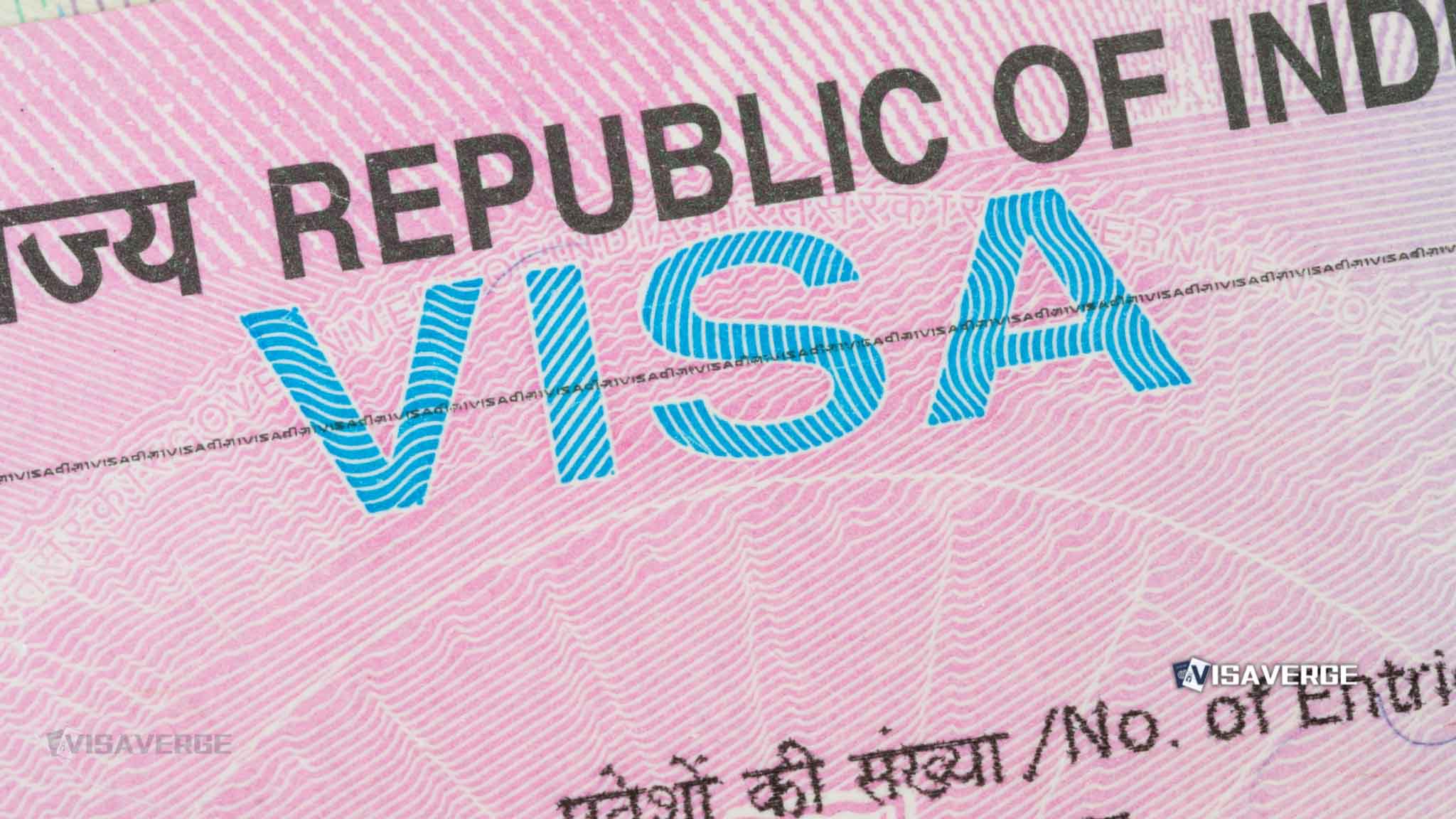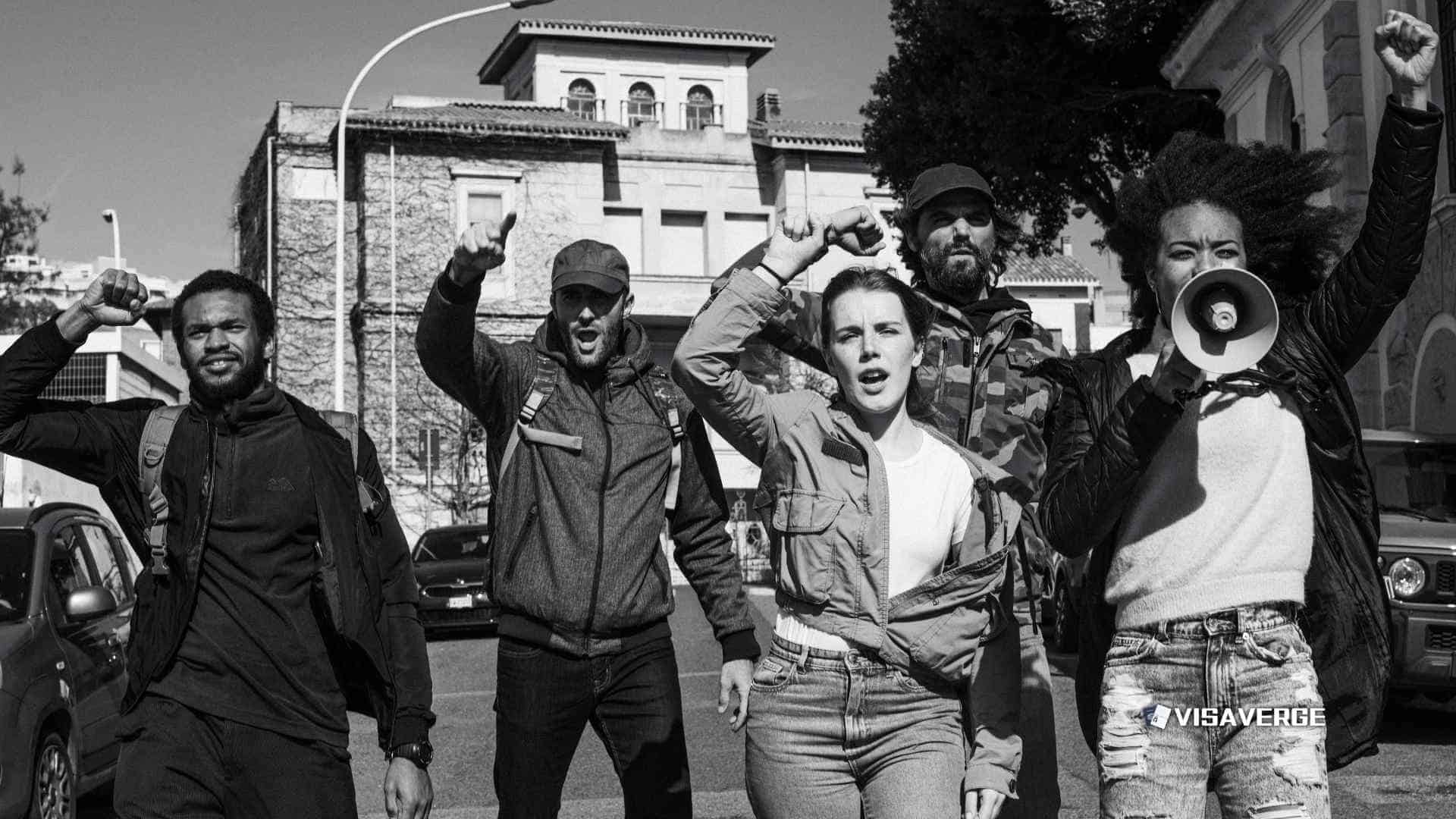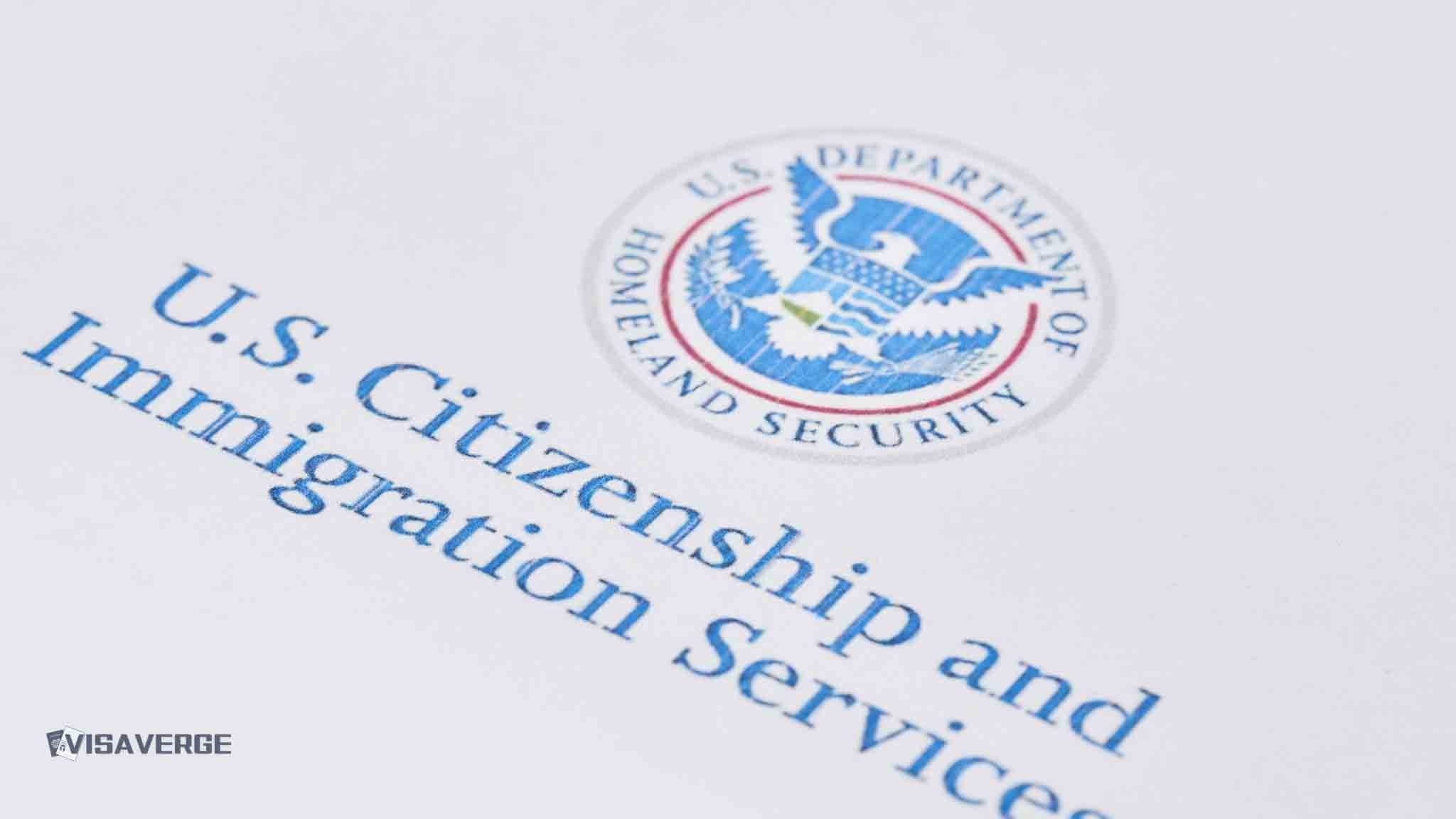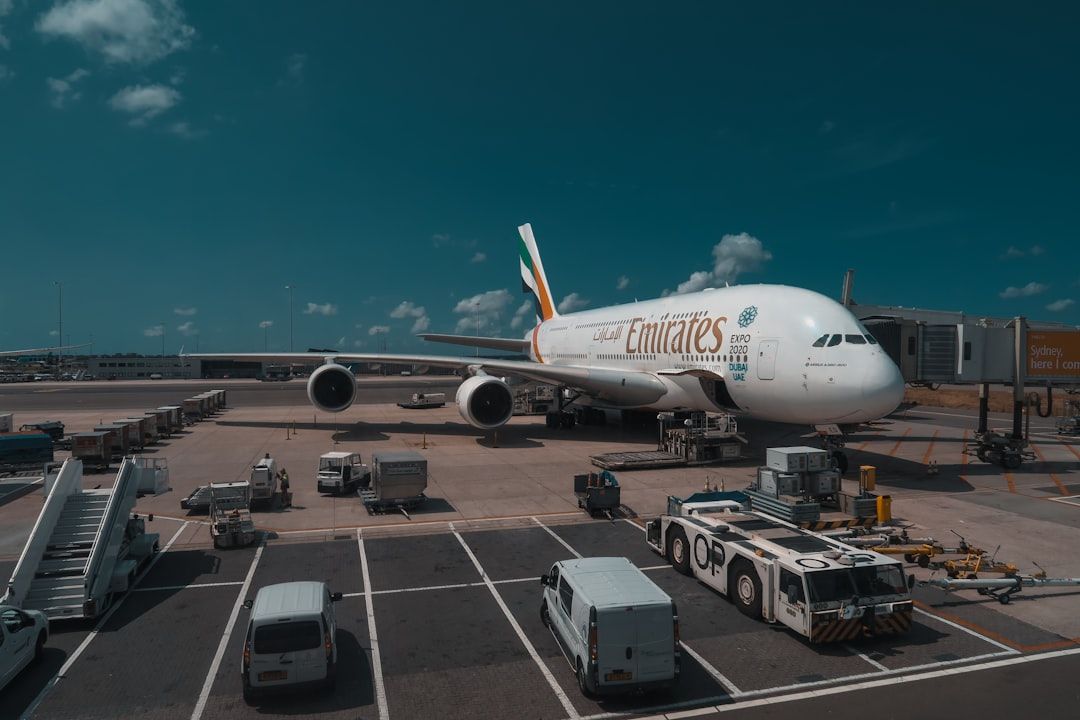Key Takeaways
• In July 2025, Astrid-Ira McCarthy found she lacked key citizenship proof when applying for a U.S. passport.
• International adoptees before 2000 risk missing citizenship documents, needing Form N-565 for replacements.
• No new federal laws simplify citizenship proof; adoptees must act early to avoid deportation risks.
A Minnesotan woman’s recent struggle to prove her U.S. citizenship after being adopted from India as an infant is drawing attention to a problem that affects many international adoptees in the United States 🇺🇸. This update explains what has changed, who is affected, what steps are required, and what the implications are for those with pending or incomplete citizenship documentation. The story of Astrid-Ira McCarthy, who grew up in Minnesota after her adoption from India, shows how gaps in paperwork can create real risks and anxiety—even for people who have lived as Americans their entire lives.
Summary of What Changed

In July 2025, Astrid-Ira McCarthy, a Minnesotan adopted from India as a baby in 1989, discovered she could not prove her U.S. citizenship when she applied for a passport. She had always believed she was a citizen, but was missing a key naturalization document. This situation has become more urgent as the United States 🇺🇸 has increased immigration enforcement and deportations, making proof of citizenship more important than ever.
McCarthy’s case is not unique. Many international adoptees, especially those adopted before the Child Citizenship Act of 2000, may not have all the documents needed to prove their citizenship. This update will help readers understand the current requirements, who is at risk, and what steps to take if they or someone they know faces a similar problem.
Who Is Affected
The main group affected by this issue includes:
- International adoptees who were adopted by U.S. citizens, especially before the year 2000
- Adoptive families who may not have received or kept all the necessary paperwork
- Adults who were adopted as children and are now applying for passports, jobs, or benefits that require proof of citizenship
In McCarthy’s case, she was adopted from India and raised in Minnesota. She had a birth certificate and always thought she was a U.S. citizen. But when she tried to get a passport, she learned she was missing the naturalization certificate needed to prove her status.
This problem can affect people from many countries, not just India. Anyone adopted internationally by U.S. citizens could face similar issues if their paperwork is incomplete.
Effective Dates and Current Environment
The urgency of this issue has grown in 2025 because of a climate of increased immigration enforcement and deportations in the United States 🇺🇸. While the laws about adoptee citizenship have not changed recently, the risks of not having proper documentation have become more serious.
- Child Citizenship Act of 2000: This law says that most children adopted internationally by U.S. citizens automatically become citizens if they meet certain requirements. However, the law does not always guarantee that adoptees have the documents they need to prove it.
- No recent federal policy changes: As of July 2025, there have been no new federal laws or rules to make it easier for adoptees to get proof of citizenship. Advocacy groups are pushing for changes, but for now, the process remains the same.
Required Actions for Affected Individuals
If you or someone you know is an international adoptee who may not have all the necessary citizenship documents, here are the steps you should take:
- Check Your Documents
- Look for a U.S. passport, Certificate of Citizenship, or Certificate of Naturalization. These are the main documents that prove U.S. citizenship.
- If you only have a birth certificate from your country of birth (like India), that is not enough to prove U.S. citizenship.
- Contact U.S. Citizenship and Immigration Services (USCIS)
- If you are missing your Certificate of Citizenship or Naturalization, you need to apply for a replacement.
- Use Form N-565 to request a replacement Certificate of Citizenship or Naturalization. You can find the official form and instructions on the USCIS website.
- Gather Supporting Documents
- You will need to provide proof of your adoption, your parents’ citizenship, and your entry into the United States 🇺🇸.
- Common documents include adoption decrees, your parents’ U.S. passports or birth certificates, and your own entry records.
- Pay the Required Fee
- There is a fee for filing Form N-565. Check the USCIS fee schedule for the current amount.
- Seek Legal Help if Needed
- If you have trouble finding documents or understanding the process, contact an immigration attorney or an adoption advocacy group for help.
- Apply for a U.S. Passport After Receiving Proof
- Once you have your Certificate of Citizenship or Naturalization, you can apply for a U.S. passport as proof of your status.
Implications for Pending Applications
If you have already applied for a passport or other benefit and your application is pending because you cannot prove your citizenship, you should:
- Contact the agency handling your application to explain your situation and ask for extra time to provide documents.
- Begin the process of obtaining your Certificate of Citizenship or Naturalization right away by filing Form N-565.
- Keep copies of all correspondence with government agencies, and document every step you take to resolve the issue.
If you are facing deadlines or risk losing benefits, legal aid organizations in Minnesota and other states can help you request extensions or emergency assistance.
Emotional and Practical Impact
Astrid-Ira McCarthy’s experience shows how stressful and frightening this situation can be. She described feeling anxious and frustrated, especially as news of increased deportations spread across the country. Even though she has lived in the United States 🇺🇸 since she was six months old, she now faces the fear of being treated as if she does not belong.
Many adoptees feel the same way. They grow up believing they are fully American, only to discover as adults that missing paperwork can put their lives on hold. This can affect their ability to:
- Travel outside the United States 🇺🇸
- Get a job that requires proof of citizenship
- Access government benefits or services
- Feel safe from detention or deportation
Broader Legal and Policy Context
The problem faced by McCarthy and other adoptees is part of a larger conversation about adoption, identity, and legal status in the United States 🇺🇸. In Minnesota, there are also ongoing debates about adoption laws affecting Native American children, such as the Indian Child Welfare Act (ICWA) and the Minnesota Indian Family Preservation Act (MIFPA). These laws focus on keeping Native children with their families or tribes, but they are separate from the issue of international adoptee citizenship.
Still, all these cases show how important it is for adopted children—whether from India, Native American communities, or elsewhere—to have clear legal status and documentation. Without it, they can face lifelong problems.
Expert and Advocacy Group Recommendations
Legal experts and adoption advocates recommend several steps to help prevent these problems:
- Early Verification: Adoptive families should check their children’s citizenship status as soon as possible, even if the adoption happened many years ago.
- Secure Documentation: Keep all original documents in a safe place, and make copies in case anything is lost.
- Advocacy for Reform: Many groups are calling on USCIS and lawmakers to make it easier for adoptees to get proof of citizenship, especially for those adopted before 2000.
- Community Support: Adoptees and families should reach out to support groups and legal aid organizations for help and advice.
According to analysis by VisaVerge.com, cases like McCarthy’s highlight the need for better outreach and simpler processes so that adoptees do not face unnecessary hardship or fear.
Practical Guidance for Minnesotans and Others
If you are a Minnesotan adopted from India or any other country, or if you are an adoptive parent, here are some practical steps you can take:
- Review your citizenship documents now, even if you have never had a problem before.
- If you are missing anything, start the process to get replacements as soon as possible.
- If you are unsure about your status, consult with an immigration attorney or an adoption advocacy group.
- Keep up with any changes in federal or state laws that might affect your rights.
For those in Minnesota, legal aid services and adoption advocacy organizations can provide free or low-cost help. The USCIS website also offers information about citizenship and the application process.
Key Takeaways
- International adoptees may not have automatic proof of U.S. citizenship, even if they are citizens by law.
- Missing documents can lead to serious problems, including denial of passports, loss of benefits, and fear of deportation.
- The main form to replace lost citizenship documents is Form N-565, available from USCIS.
- There are no new federal laws in 2025 to make this process easier, but advocacy efforts continue.
- Adoptees and families should act early to secure all necessary paperwork and seek help if needed.
Looking Ahead
While Astrid-Ira McCarthy’s case has brought new attention to this issue in 2025, it is not likely to be resolved quickly for everyone. Until there are changes in the law or new policies from USCIS, the best protection for adoptees is to make sure all documents are in order and to seek help if anything is missing.
Advocates hope that stories like McCarthy’s will lead to reforms that make it easier for international adoptees to prove their U.S. citizenship without fear or confusion. In the meantime, staying informed and acting early are the best ways to avoid problems.
Resources for Further Help
- USCIS Form N-565: Official application for replacement citizenship documents
- USCIS Citizenship Information: Learn about citizenship
- Adoption Advocacy Groups: Organizations like the Evan B. Donaldson Adoption Institute offer guidance and support.
- Minnesota Legal Aid: Local legal aid services can help with immigration and adoption law questions.
If you or someone you know is a Minnesotan adopted from India or another country and is unsure about their citizenship status, do not wait until you need a passport or benefit. Check your documents now, and take steps to secure your future in the United States 🇺🇸.
Learn Today
Certificate of Naturalization → An official document proving a foreign-born individual’s U.S. citizenship status acquired after birth.
Child Citizenship Act of 2000 → A law granting automatic U.S. citizenship to most children adopted internationally by U.S. citizens.
Form N-565 → USCIS application form to request a replacement Certificate of Citizenship or Naturalization.
USCIS → U.S. Citizenship and Immigration Services, the government agency managing citizenship and immigration processes.
International adoptee → A person adopted from another country by U.S. citizens, often requiring proof of citizenship.
This Article in a Nutshell
A Minnesotan adopted from India faced citizenship proof issues in 2025, highlighting risks for international adoptees missing documents. Despite living in the U.S. since infancy, missing naturalization certificates threaten benefits, travel, and job opportunities. Adoptees should verify documents and use USCIS Form N-565 for replacements to secure legal status.
— By VisaVerge.com







